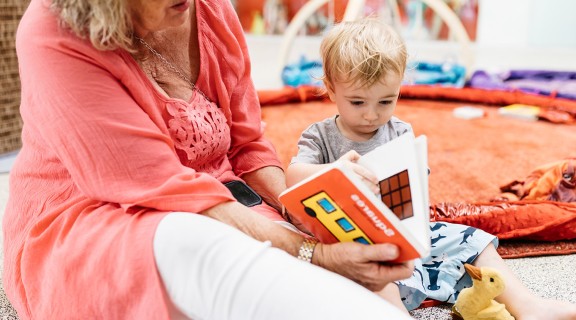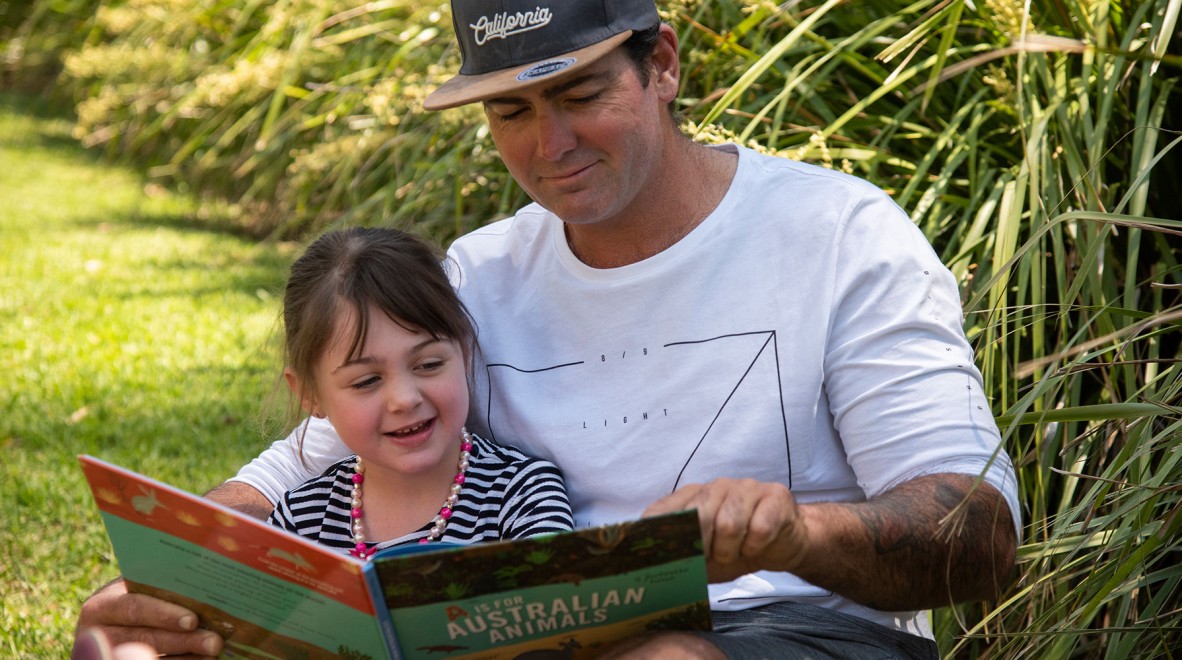
Why story repetition is so important
30 October 2019 | State Library of Queensland
Rhyme and story repetition is important for children's development.
Do you have a favourite book that has been loved so much it’s falling apart? The corners are scuffed, the pages are torn and you and your child know exactly what’s coming with each page turn? Some family favourites can even last for decades as they get passed down through the generations. What about a handful of favourite rhymes or songs that are sung over and over?!
There’s a good reason for this. Babies and young children love repetition as they learn and flourish from it.
Next time you share a well-loved book or rhyme, watch what happens. Depending on the age of your child, they may make sounds or fill in the words. They might know what’s about to happen next or start little conversations about the pictures and the story. This is a wonderful sign and because with each reading, your child is learning more and more.
Whether it’s the third or the thirtieth time you've read the book or sung the rhyme, as long as your child is interested, they will continue to notice and learn new things.
Sharing the same book or rhyme over and over, also turns unfamiliar topics into familiar things.

Imagination
Queensland kids don’t often play in Wintry wonderlands, but through imagination, books can take families on icy adventures to discover things around the world – like igloos, polar bears and penguins. Through books, city children can imagine life on the farm, and country children can imagine life in the city. Opening your well-loved book and visiting an unfamiliar world again and again will help build your child's language and knowledge about things outside their everyday life.
Comments
Your email address will not be published.
We welcome relevant, respectful comments.